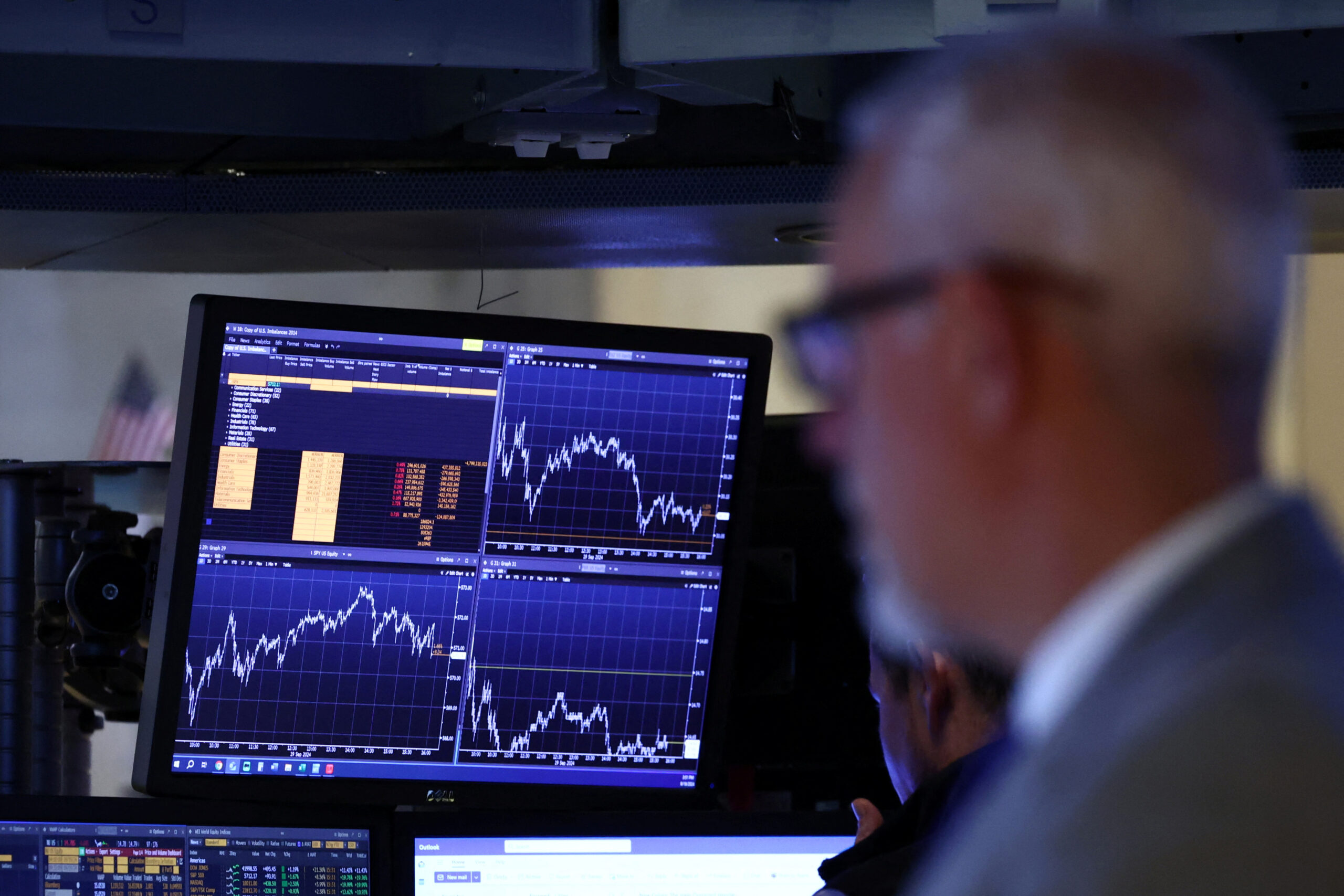Wall Street stocks advanced on Wednesday with the S&P 500 and the Dow scoring record closing highs after the release of Federal Reserve meeting minutes and ahead of September inflation data and the earnings season.
Shares in market heavyweight Alphabet (NASDAQ: GOOG) pared losses to finish down 1.5% after the U.S. Department of Justice said it may ask a judge to force Google to divest parts of its business. These include its Chrome web browser and its Android operating system, to curtail its search monopoly.
The Fed’s September meeting minutes showed a “substantial majority” of officials supported an outsized half-point rate cut. However, there was broader agreement that the move would not commit the Fed to any particular pace of cuts in the future.
Traders were last pricing in a roughly 79% chance of a 25-basis-point reduction in borrowing costs and a 21% probability the Fed keeps rates on hold, according to CME’s FedWatch.
“The minutes confirmed what we’d thought all along and relieved investors. There was a debate about the 50 basis point cut, meaning that it wasn’t a sweeping consensus that we needed to do a drastic 50 basis point cut,” said Lindsey Bell, chief strategist at 248 Ventures in Charlotte, North Carolina.
The market is awaiting the Consumer Price Index inflation report due on Thursday morning and the third-quarter corporate earnings season, which kicks off in earnest with some of the biggest U.S. banks reporting on Friday.
“The minutes were also further confirmation that the Fed believes they’ve won the fight on inflation. So tomorrow’s CPI number shouldn’t be too much of a surprise,” said Bell.
Trading has been choppy this week, with investors adjusting rate-cut expectations after a surprisingly strong September jobs report suggested a U.S. economy that is in better shape than investors had feared.
“There’s an air of optimism in the market since the Friday jobs report. Investors remain optimistic on the soft- to no-landing scenario,” she said, referring to the possibility that the economy might even avoid a mild recession.
The Dow Jones Industrial Average rose 431.63 points, or 1.03%, to 42,512.00. The S&P 500 gained 40.91 points, or 0.71%, at 5,792.04 and the Nasdaq Composite climbed 108.70 points, or 0.60%, to 18,291.62.
The S&P registered a closing record high for the first time in October but for the 44th time in 2024. The last time the Dow scored a closing record was on October 4.
Of the S&P 500’s 11 industry sectors 9 rose while rate-sensitive utilities fell 0.9% and the communications services index, which includes Alphabet, lost 0.6%.
“News about antitrust initiatives create worries about what that means for the technology sector broadly and specifically the most dominant players,” said Daniel Morris, chief market strategist for asset management at BNP Paribas.
Investors were also monitoring any potential damage from Category 5 Hurricane Milton.
The expanding hurricane was closing in on Florida’s west coast, spawning tornados and lashing the region with rain and wind hours ahead of its expected landfall near Tampa Bay Wednesday night where it could deliver a life-threatening surge of seawater to communities already battered by Hurricane Helene.
Among prominent stocks, Boeing (NYSE: BA) shares ended down 3.4% after talks between the aerospace company and its key manufacturing union broke down.
Among gainers, shares of Norwegian Cruise Line (NYSE: NCLH) outperformed with a 10.9% advance after Citi upgraded its rating to “buy.” Its peer Carnival (NYSE: CCL) rose 7% while Royal Caribbean Group (NYSE: RCL) added 5.2%.
Shares of Arcadium Lithium (NYSE: ALTM) soared 30.9% after Rio Tinto (NYSE: RIO) said it would acquire the miner for $6.7 billion.
U.S.-listed shares of China’s Alibaba Group (NYSE: BABA) dropped 1.6% and PDD Holdings (NASDAQ: PDD) fell 2.3% as investors questioned whether China would announce new stimulus measures.
Advancing issues outnumbered decliners by a 1.31-to-1 ratio on the NYSE where there were 339 new highs and 49 new lows.
On the Nasdaq, 2,164 stocks rose and 2,113 fell as advancing issues outnumbered decliners by a 1.02-to-1 ratio. The S&P 500 posted 52 new 52-week highs and two new lows while the Nasdaq Composite recorded 88 new highs and 133 new lows.
On U.S. exchanges 11.09 billion shares changed hands compared with the 12.04 billion moving average for the last 20 sessions.
(Source: ReutersReuters)
Edward Cooke is a financial analyst, freelance writer, and editor. He has six years of experience in financial journalism. He has an in-depth understanding of equities markets, tracking major indices and providing real-time analysis on stock price movements, corporate earnings, and market sentiment. Read Full Bio










